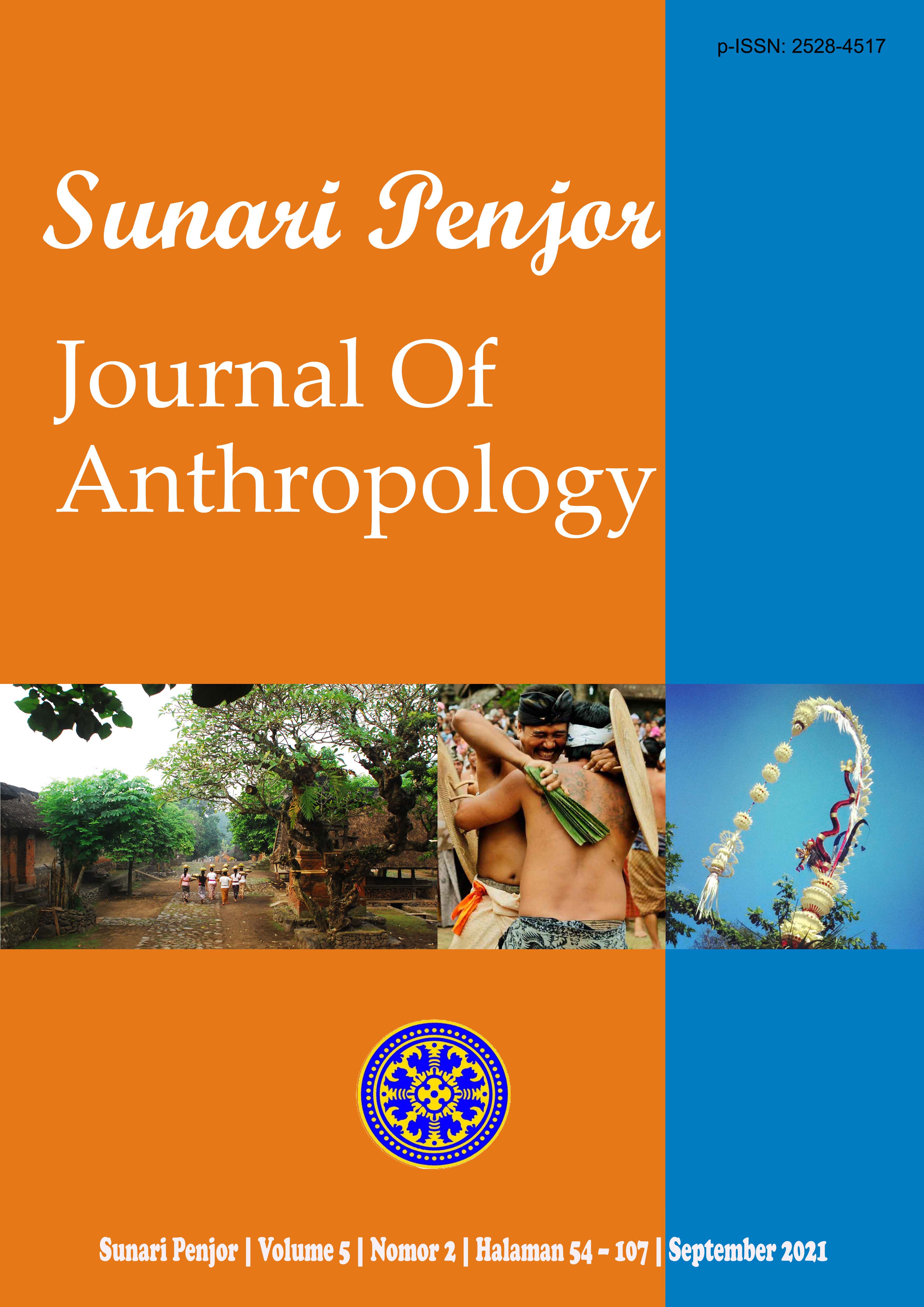Menilik Keberadaan Komunitas “Mega Fit Club” terhadap Gaya Hidup Masyarakat Perkotaan di Kota Denpasar, Provinsi Bali
Abstract
The behavior of today's society does not carry out a healthy lifestyle, especially in urban communities. The development of the world of agricultural technology and instant food processing has caused fundamental changes to diet. Technological sophistication, especially in urban areas, makes people's work easier, so that people are very dependent on technology in various ways. This condition causes the physical activity of urban communities to decline. This can cause health problems, one of which is obesity. Urban people who are starting to realize that their health is compromised, finally decide to join a health community such as the “Mega Fit Club”. Mega Fit Club is a place for urban people who want to change their lifestyle to be healthier. The theory used in this study is the symbolic interaction theory of Herbet Blumer. This theory is used to examine the implications of the existence of the "Mega Fit Club" community on the lifestyle of urban communities. The method used in this study is a qualitative method with data collection techniques of observation, interviews and document studies. Data analysis used interpretive descriptive analysis. The results showed that the existence of the Mega Fit Club was able to have implications for the lifestyle of urban communities. These implications are positive which makes them healthier and more active in their daily lives. In addition, changes in their lifestyle in the Mega Fit Club also have implications for their body condition, namely the body becomes healthier, reduces complaints of disease experienced by urban communities, relieves stress, increases enthusiasm for living a healthy life, and improves appearance by obtaining an ideal body and become slimmer.
Downloads
References
Adliyani, Zaraz Obella Nur. (2015). Pengaruh Perilaku Individu terhadap Hidup Sehat. Lampung: Faculty of Medicine, Lampung University.
Denpasarkota.go.id. (2020). “Obesitas Menjadi Masalah Perkotaan”. https://www.denpasarkota.go.id/berita/baca/3898 Diakses pada 24/09/2020.
Hermawan, Kertajaya. (2008). Arti Komunitas. Jakarta: Gramedia Pustaka Utama.
Irwan. (2017). Etika dan Perilaku Kesehatan. Yogyakarta: Absolute Media.
Kalangie, Nico S. (1994). Kebudayaan dan Kesehatan. Jakarta: Kesaint Blanc.
Koentjaraningrat. (2015). Pengantar Ilmu Antropologi. Jakarta: Rineka Cipta.
Permana, Rizky Wahyu. Merdeka.Com. (2019). “28 Persen Kalori Masyarakat Perkotaan Berasal dari Makanan Siap Saji”. https://www.merdeka.com/sehat/28-persen-kalori-masyarakat-perkotaan-berasal-dari-makanan-siap-saji.html Diakses pada 24/09/2020.
Situngkir, Lidya Natalia. (2012). “Pengetahuan dan Sikap terhadap Gaya Hidup Sehat pada Mahasiswa Fakultas Kesehatan Masyarakat Universitas Sumatera Utara. Skripsi Universitas Sumatera Utara, Medan.
Soekanto, Soerjono. (2013). Sosiologi Suatu Pengantar. Jakarta: Rajawali Pers.
Sudargo, Toto dkk. (2014). Pola Makan dan Obesitas. Yogyakarta: Gajah Mada University Press.
Sulistijani, DA. (2002). Sehat dengan Menu Berserat. Jakarta: Trubus Agriwidya.
Susilo, Ferdi. (2015). “Fragmentasi Manusia dalam Kultur Makan Masa Kini”. MELINTAS 31.2.2015, pp: 201-219.














